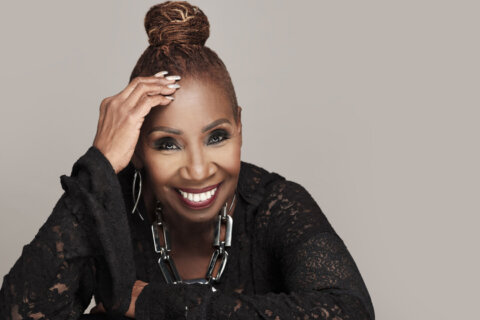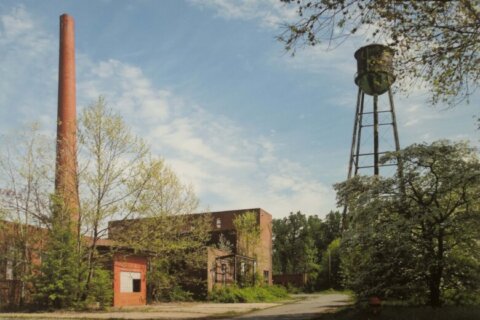The Prince George’s County Council in Maryland spent several hours Tuesday afternoon hearing from people about cannabis, and then themselves spent 45 minutes discussing a bill that would limit any new dispensaries from opening outside of industrial or light industrial zoned areas of the county.
In the end, the council voted down an amendment that would have allowed them to operate in commercially zoned shopping centers. Meanwhile an initial vote imposing new restrictions passed the full council operating as a council committee, setting up a final vote of the council in the coming weeks.
Robust debate on the measure ago led the council to postpone action a week ago, and when the discussion began there were dozens of people ready to speak out. Most of those who spoke as private residents complained about marijuana use among county teenagers, and blamed the legalization for a rise in crime, as well as quality of life nuisances connected to the smell of burned marijuana.
“Cannabis is being misused and causing more problems, and harming teenagers and underage children,” said Julia Baltimore during her testimony. “It causes brain damage affecting teens and underage children and their ability to function properly. Their lives are being destroyed.”
Faye Nelson said keeping future dispensaries out of shopping centers made business sense.
“Makes it easier for authorities to regulate and monitor compliance with the strict laws surrounding cannabis sales,” said Nelson. “Separating them from grocery stores can help maintain security measures that affect other businesses.”
But dispensary owners were quick to defend their industry.
“Cannabis is already accessible by a lot of our youth regulation and regulated businesses. That is not what we support. That’s not what we perpetuate,” said Hope Wiseman, who owns Mary and Main in Capitol Heights. “The presence of a regulated business helps to combat the illicit market. We’re held to a much higher standard than any liquor store owner, then any smoke shop owner.”
Wiseman also boasted that she was the youngest Black woman in the country to own a dispensary, and noted that the bill will harm future entrepreneurs like herself, since two-thirds of the new licenses the state will be awarding will be set aside for “social equity owners,” and that many of those will be in Prince George’s County. Those licensees have to be someone who lives in or attended a public school in what’s considered an area disproportionately impacted by arrests for cannabis possession over a 10-year period from 2013-2022.
“We don’t want to push them away … this is almost like fearmongering,” said Wiseman. “The propaganda used to push the war on drugs is alive and well still today.”
Those concerns are what prompted District 2’s Wanika Fisher to propose the amendment that would have allowed cannabis dispensaries to operate in shopping centers.
“Social Equity applicants were fought for by the largest Black caucus in the entire United States, which is Maryland, and passed in order to make sure that black and brown and minority and women applicants would get licenses,” said Fisher. “In its current form … we’ll be sued and cost our county money because it’s going to place an undue burden on the industry.”
She also pointed out that with the other restrictions already in place, her amendment to legalize dispensaries in commercially zoned buildings, like shopping centers, really won’t have much of an impact on where they’re allowed to operate already. Maps posted online by the council show only a few differences in where dispensaries would be allowed to open, depending whether or not Fisher’s amendment would pass.
“This doesn’t make sense,” said Fisher. “We are going to get sued.”
Later in the discussion, council chair Tom Dernoga agreed with Fisher about the two maps, but then said that’s why the new law would be safe to pass.
“They’re either both invalid, or frankly, there’s no distinction,” said Dernoga.
But supporters of the measure, including Council members Wala Blegay and Krystal Oriadha, disagreed.
“I voted to legalize marijuana,” said Blegay. “I don’t want it in our local community, I don’t want it in our local shopping centers.”
“It’s a risk and is a risk that I feel that we shouldn’t take,” she added. “Let’s place them in industrial zones. Light industrial is even near some areas where you can easily access and those that want it will get it.”
Oriadha said she also thought the county would be on firm footing if it were sued for placing undue burdens on new licensees.
“My district has made it clear about a few things. One, the oversaturation that we have around current industries, the tobacco industry, the liquor store industry, and … some other like developmental issues in our district outside of the conversation around cannabis,” said Oriadha. “And what they made clear is that they wanted us to be proactive, not reactive.”
She added that some of the zones that dispensaries would be permitted to operate in already have restaurants, medical offices and even other dispensaries in them.
“So it’s not a place that people don’t frequent,” said Oriadha.
In the end, the measure easily cleared the council’s Committee of the Whole, essentially the entire council operating as a committee. It’ll come up for a final vote again in November.








